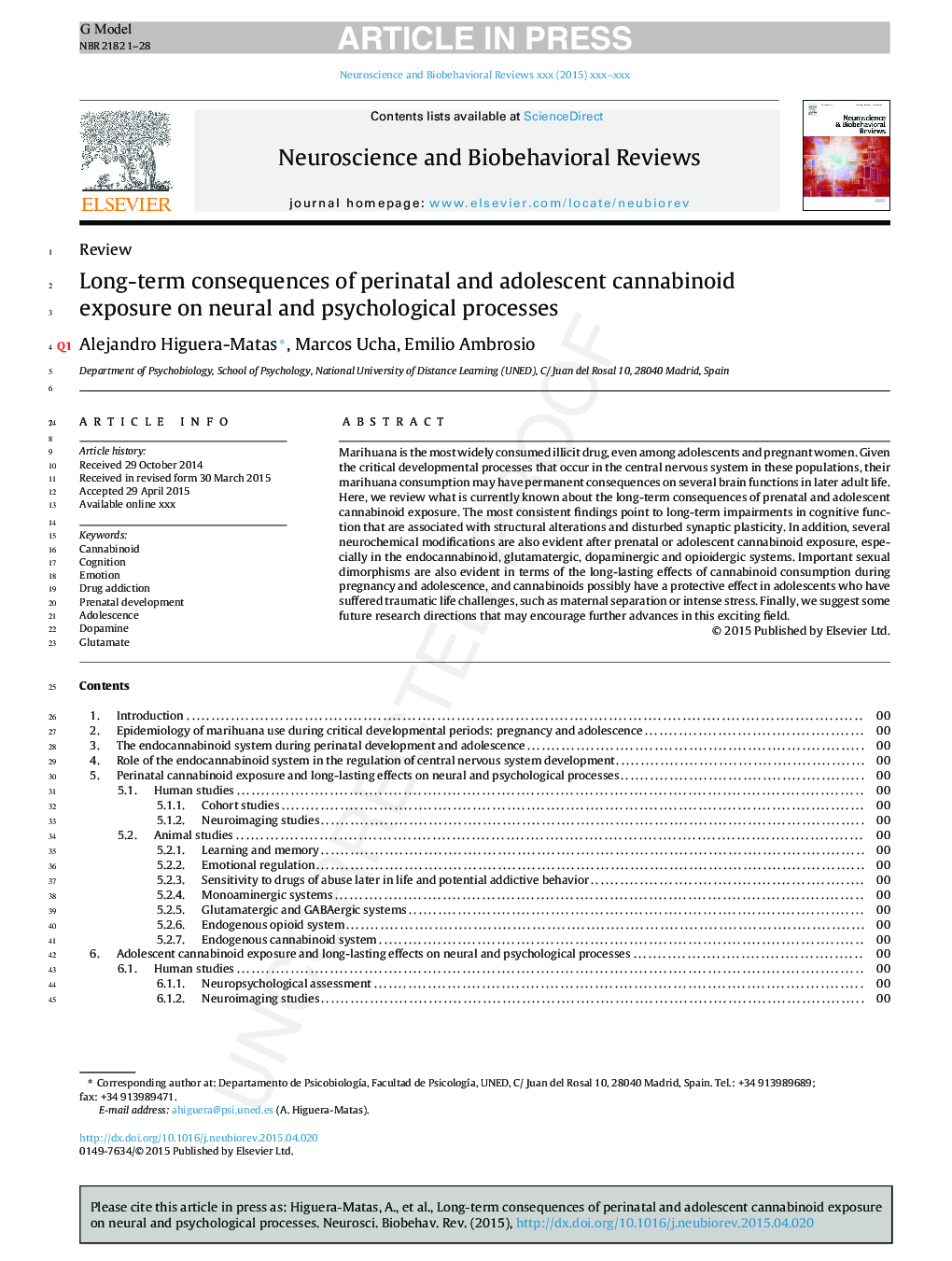| Article ID | Journal | Published Year | Pages | File Type |
|---|---|---|---|---|
| 7303363 | Neuroscience & Biobehavioral Reviews | 2015 | 28 Pages |
Abstract
Marihuana is the most widely consumed illicit drug, even among adolescents and pregnant women. Given the critical developmental processes that occur in the adolescent and fetal nervous system, marihuana consumption during these stages may have permanent consequences on several brain functions in later adult life. Here, we review what is currently known about the long-term consequences of perinatal and adolescent cannabinoid exposure. The most consistent findings point to long-term impairments in cognitive function that are associated with structural alterations and disturbed synaptic plasticity. In addition, several neurochemical modifications are also evident after prenatal or adolescent cannabinoid exposure, especially in the endocannabinoid, glutamatergic, dopaminergic and opioidergic systems. Important sexual dimorphisms are also evident in terms of the long-lasting effects of cannabinoid consumption during pregnancy and adolescence, and cannabinoids possibly have a protective effect in adolescents who have suffered traumatic life challenges, such as maternal separation or intense stress. Finally, we suggest some future research directions that may encourage further advances in this exciting field.
Related Topics
Life Sciences
Neuroscience
Behavioral Neuroscience
Authors
Alejandro Higuera-Matas, Marcos Ucha, Emilio Ambrosio,
